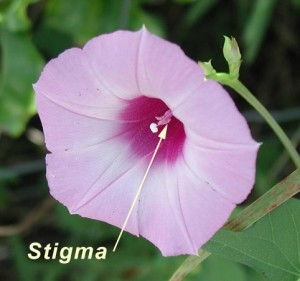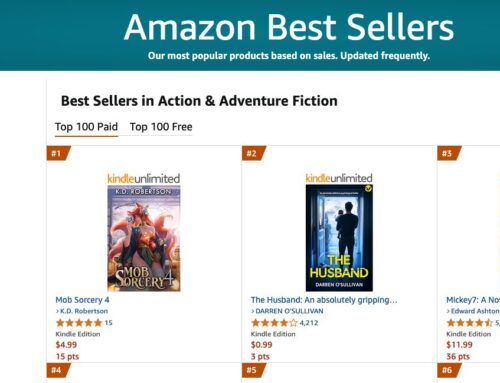
Publishing a book is a good deal more personal than that, but I would imagine that a lot of self-publishers are just excited about seeing a book in print. They’ll naturally try to get it read and reviewed, but if it doesn’t sell 5000 copies, they won’t be too surprised. The stigma that subsidy services are predatory is something that needs to go away.
Jane Smith, on her blog How Publishing Works, writes,
I’ve met one woman, a widow in her sixties, who invested her savings in publishing her book hoping it would allow her to help her children have a better life and instead, she ended up having to choose between heating her house or eating in the winter. Would you feel happy if your mother, your aunt or your sister was that woman? No? Neither would I.
That’s terrible and tragic, but just because something like that happens does not mean that the entire self-publishing system is flawed. Not to sound callous, but it is incumbent in some regard on writers to do some research. There are crooks – like Publish America – but generally I would imagine that people understand that self-publishing’s difficult and expensive and different than being published traditionally. Maybe I’m wrong on that – maybe there are more awful scams than people who release a book and accept their losses. But people are scammed into bad investments as well and that doesn’t mean the entire investing system is corrupt.
“Independent” Publishing
Victoria Strauss – who is a constant proponent that self-publishing is naturally second rate – brings up the idea that self-publishers should never call themselves independent publishers. She calls out an article on the Author Solutions website titled “The Next Indie Revolution.” Her claim is that this blurs the line between self-publishers and actual independent publishers: Soft Skull, Akashic, etc. Mysteriously, self-publishing is held to a much different standard than other artistic mediums. With music, a common practice is for bands to print up their own CDs, maybe creating their own record label, and then registering that CD with a site like CD Baby, for a fee of $30 (last I checked).
This system is no different than a writer using a self-publishing service to print up books and getting an account with a site like Authors Bookshop. But if the musician calls himself an independent musician and his self-made label an independent label, there is no outrage that he’s moving in on the territory of Drag City, Teen Beat, Dischord – the big independent labels.
I’ve been wondering why books are held to such a different standard than other independent mediums and I’ve come to the conclusion that reading a book is a personal experience. Music and movies are enjoyed communally – with an audience all sharing the experience together. That shared experience is a different process than the very personal act of reading a book. An audience is a kind of seal of approval, or at least a path towards legitimacy. This could account for why podiobooks are not looked down on as much as POD books – because this is like halfway between a book and music. It’s a broadcast, not just a personal experience enjoyed by one person at a time. For some reason, the intensely personal experience of reading a book makes people much more resistant to writers releasing their own work.
There’s also the fact that a band and a movie are comprised of a number of different players. A band can have five members, a movie can have hundreds of actors and people behind the scenes. So there’s a sort of strength in numbers – these people all take the blame or reward for the quality of the product. A self-published writer is entirely on his or her own.
So the stigma remains that a self-publisher can never be an independent author, even if the process is no different whatsoever than a band printing and releasing a CD, or a filmmaker paying actors out of his own pocket and paying for DVD’s to be printed up. That movie will still be called an independent film. This idea that self-published books can never be considered independent is one of those stigmas that may eventually go away: the more quality self-published books get produced, and the more people understand how hard it is to get traditionally published, even if your book warrants it.
Last person to link to: a more-measured approach to self-publishing. She does play into the stigma that self-published books are generally bad – an assumption that needs to go away because the fact is most books generally are bad. Most music is bad. So it’s just too blanket an assumption to make about self-publishing. Not when self-publishing is necessary for more people given the incredible competition to be traditionally published. But at least she ends:
Do not even contemplate going down the s-p route unless for the right reasons and with eyes wide open. If you do have the right reasons and eyes wide open, I have enormous respect for you and wish you lots of luck. I certainly do not look down on those few s-p authors who produce an excellent book.
Self-publishers often don’t even get that benefit of the doubt.
Get an Editorial Review | Get Amazon Sales & Reviews | Get Edited | Get Beta Readers | Enter the SPR Book Awards | Other Marketing Services






















I recently blogged on the subject of bias against self-published books (http://levimontgomery.wordpress.com/2009/05/05/self-publishing-and-the-persistence-of-bias/). I get really tired of seeing this every where I turn. Contest won’t accept, bookstores don’t want you, reviewers won’t review you. All self-published books are bad. All bad books are self-published. Sooner or later all of this will go away, just as the bias of the monks against Herr Gutenberg’s new-fangled contraption. Why surely, every educated person will realize that any book not copied out by trained scribes must be inferior! It’s just the same thing all over again, and I’m sure it will come to pass. My only question is whether I will be alive to see it.
Hey Henry, I’m going to try to be slightly more coherent here…
I’ve thought a lot about this issue: the attitudes about indie musicians vs. indie authors, and I think a big part of it is that a lot of the first indie music was punk and other forms of “rock,” which is by nature, defiant. Punk and rock/alternative musicians tend to be “defiant” as well. This defiance makes it socially acceptable within their group of other musicians to break away and do their own thing. Being anti-establishment is very trendy.
But in writing, it’s different. Most writers just aren’t that defiant. They’re grateful to have the attention of a publisher or agent. They NEED to be validated desperately by someone who “knows” and can tell them they are good. Writers seem by nature somewhat more masochistic than musicians in that there seems to be some value in the suffering itself, whether it produces anything wonderful or not.
It will take the defiant writers among us to change things so that somewhat less defiant writers can find the courage to break away from the status quo if it becomes necessary for them later.